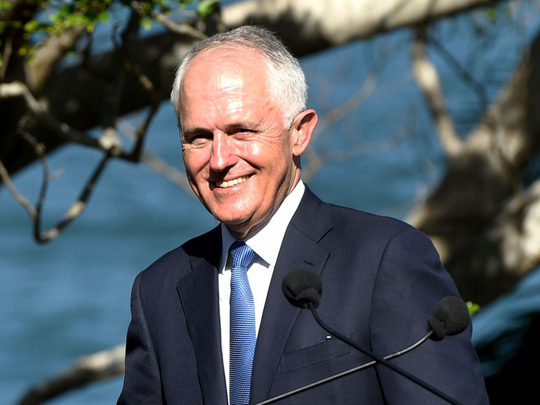
When the news is bad, governments love distractions, and this week the Australian Open has been excellent for diverting voters’ attention from more examples of how badly this government is at governing. To be fair to Nick Kyrgios and Novak Djokovic , it’s not all their doing. This government - like many others before - has purposefully used the summer holidays to avoid scrutiny. We would do well to recall that one of the last acts of the government in 2016 was to release the March and June quarterly greenhouse gas emissions reports on the Thursday before Christmas.
The transparent desire to release the report at a time when most of the public were in holiday mode is all you need to know to realise how bad it is for the government.
The report showed that greenhouse gas emissions from electricity have continued to rise since the repeal of the carbon price. Emissions from electricity generation in the June quarter last year were 4.4 per cent higher than in the June 2014 quarter — the last quarter under the carbon price.
It demonstrated that while the government’s Direct Action policy might be good at providing money to companies to do what they were already planning to do — or even not do what they were already planning not to do — it utterly fails at reducing greenhouse gas emissions. Now that wouldn’t matter much, except of course 2016 was the hottest year on record and policy sops to climate change deniers such as is Direct Action are one of the main reasons why preventing temperatures rising by 2C above pre-industrial levels is now almost beyond our ability.
Unfortunately for the government it was not able to ensure the release of the Australian National Audit Office report into offshore processing centres just before Christmas. But given the tennis, cricket, Centrelink payments debacle , expenses scandals and ministerial reshuffle, the report’s release this week did get a bit lost. And the report does deserve notice.
The report slammed the Department of Immigration and Border Protection. It noted that the department’s “management of the garrison support and welfare services contracts at the offshore processing centres in Nauru and Papua New Guinea (Manus Island) has fallen well short of effective contract management practice”.
“Well short” is the type of polite language the ANAO uses because saying “complete dumpster fire” comes across as rather less than formal. The report covers the period since 2012, and thus the previous Labor government does not come away unscathed. For example, the report found that the department “did not update its asset register and advise Comcover of new facilities in Nauru valued at $75 million”. Thus, when the facility was burnt down in a riot in 2013 it was not insured. Cripes.
But the report also provides absolutely no joy for the Abbott or Turnbull governments. It concludes that of payments made between September 2012 and April 2016, “$1.1bn was approved by DIBP officers who did not have the required authorisation; and for the remaining $1.1bn there was no departmental record of who authorised the payments”.
It comes off the back of another ANAO report released last September into the procurement of support and welfare services for offshore detention centres that found the tendering process was horribly flawed. The ANAO found that in 2014, rather than use an open tender process, the department “determined to only enter into negotiations with its preferred tenderer, Transfield”. And this was done in a situation which the ANAO found “no available record of specific conflict of interest declarations having being made by departmental officers who were responsible for the procurement”.
To top it all off, the ANAO concluded that “Transfield’s overall price increased by $1.1bn above its tender bid during negotiations due to the department amending its requirements and accepting further enhancements to services” despite the department having “no government authority to increase the value of the contract to cover service additions”. And just to put a nice cherry on top, the latest ANAO report concludes of the whole tender process that these contract variation worth $1bn were made “without a documented assessment of value for money”.
The report also suggests the department utterly dropped the ball on important aspects of the contracts. It found, for example, that with respect to the filming of detainees “the department could not make available any records to demonstrate that the privacy of individuals, including in relation to filming children without parental consent, had been considered”.
Basically, when it comes to offshore detention, the tendering process was done shabbily with little care for value for money, or with the appropriate authority, and the oversight of it has been a disgrace in which “department did not develop an effective framework and strategies to manage the contracts and is not well placed to determine if the contract objectives have been fully met”.
That is, the department really can’t even determine whether the money has been well spent. Oh well, it’s only a couple billion dollars. Aside from the human rights disaster that is the current asylum seeker policy, the abysmal way in which the policy has been carried out and the cavalier manner in which money has been spent is worth remembering the next time the government gets on its high horse about waste and mismanagement.
— Guardian News & Media Ltd










